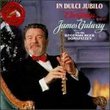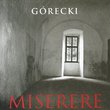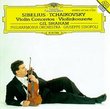| All Artists: Erich Leinsdorf Title: Erich Leinsdorf conducts R. Wagner: Orchestral Excerpts "Ring", "Parsifal" & A. Schönberg Members Wishing: 0 Total Copies: 0 Label: haenssler CLASSIC Release Date: 4/13/2009 Genre: Classical Styles: Opera & Classical Vocal, Symphonies Number of Discs: 1 SwapaCD Credits: 1 UPCs: 040888304029, 4010276012535 |
Search - Erich Leinsdorf :: Erich Leinsdorf conducts R. Wagner: Orchestral Excerpts "Ring", "Parsifal" & A. Schönberg
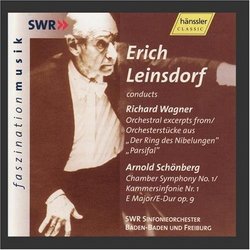 | Erich Leinsdorf Erich Leinsdorf conducts R. Wagner: Orchestral Excerpts "Ring", "Parsifal" & A. Schönberg Genre: Classical
Erich Leinsdorf conducts R. Wagner: Orchestral Excerpts "Ring", "Parsifal" & A. Schönberg: Camber Symphony No. 1 op. 9 by Erich Leinsdorf |
Larger Image |
CD DetailsSynopsis
Album Description Erich Leinsdorf conducts R. Wagner: Orchestral Excerpts "Ring", "Parsifal" & A. Schönberg: Camber Symphony No. 1 op. 9 by Erich Leinsdorf Similarly Requested CDs
|
CD ReviewsCogent and Powerfully Delivered Performances of Music by Wag Gerald Parker | Rouyn-Noranda, QC., Dominion of Canada | 05/15/2009 (5 out of 5 stars) "Erich Leinsdorf (1912-1993) always was a formidable exponent of Wagner's music, as this set's release (Hänssler Classic CD-93.040; 2 CDs), attests. Leinsdorf, like Arturo Toscanini (one of Leinsdorf's own mentors), tended to be attuned to the energetic and dramatic side of Wagnerian musical sensibilities, and was not likely to dally or to dawdle. (There's nothing wrong with less extroverted Wagner conducting, if it has depth and life to it, as, for example, Furtwängler's conducting in this music most certainly does.) One can banish undue worries about the orchestra, for the Sudwestdeutsche Rundfunk-Orchester of Baden-Baden has a long-standing record of coping honourably and skillfully with difficult music, especially with that of Arnold Schönberg (as it had done so notably on the famous recordings led by Hans Rosbaud), which is represented also on the latter part of the second of these two discs, so one easily can imagine that they are more than able to do justice to Wagner's music.
The performances are powerful and galvanisingly energetic! Leinsdorf decidedly is not, for one, an "old-timer" conductor who is holding the reins loosely in this music, that's for certain! His work at the helm has lots of heft and drive, and that marvellously incisive rhythmic ariticulation, which this conductor retained at full potency even late in life. Leinsdorf's drive and urgent momentum propel the music along very convincingly and powerfully. The orchestra has the richness and depth of timbre to convey the splendours of Wagner's orchestrations in these "symphonic syntheses" (i.e. suites for orchestra, without voices, of continuously linked sections), as Leopold Stokowski liked to call such arrangements of his own devising from Wagner's operas. The symphonic synthesis of music from Wagner's tetralogy, "Der Ring des Nibelungen", is very effective, because the music itself of Wagner's music dramas is so memorably melodious as well as so sumptuously and powerfully lush in orchestral scoring. According to the multi-lingual notes in the booklet that comes with the set of discs) Leinsdorf himself compiled and edited the excerpts from Wagner's tetralogy, choosing to present music from not quite all four operas, nothing being included from its initial component, "Das Rheingold". The excerpts follow the sequence in which they occur in the other three operas ("Die Walküre", "Siegfried". and "Götterdämmerung" which comprise the "Ring" cycle. The results of Leinsdorf's ordering of the music is one that the conductor succeeds in shaping with musical and symphonic sense and continuity on the symphonic sythesis' own terms as Leinsdorf conducts the music of this vivid concoction of portions from these Wagner scores. It all works very well and, indeed, quite memorably! One ideally could wish for even richer brass playing at times, the SWR Baden-Baden orchestra's brass section not being quite on the level of those of such orchestras of world class as the Chicago Symphony Orchestra or the Royal Concertgebouw Orchestra, but the SWR orchestra's brass playing is amply sufficient ("and then some") for the music's needs. As for the music of the symphonic synthesis from "Parsifal", it is less immediately and indelibly striking, but that is the fault of the low, vitality-wanting pulse rate and the too unremittingly slow tempi inherent in the music of Wagner's original score. Critics bold enough to say so have it right, that Wagner's attempt at sublimity tended to be more by intention than fully realised accomplishment. Often the music itself seems to drag and to lack the kind of obvious continuity and logic of Wagner's other mature operas. For all that, Leinsdorf makes the most of the selections from "Parsifal", and the performance itself leaves nothing lacking of the sweep and splendour that lies within the narrower confines of the variable levels of afflatus inherent in the music of "Parsifal". Indeed, Leinsdorf's conducting goes a long way to minimise the lapses and "longueurs" in Wagner's inspiration. If anything, the playing (the brass section's included) of the SWR's orchestra is even more impressively sumptuous, as this music's rich sonorities so urgently require, than the same orchestra's work in the orchestral synthesis from Wagner's "Ring" music. It is difficult to imagine a better recording of Arnold Schoenberg's "Kammersinfonie Nr. 1" ("Chamber Symphone No. 1"), opus 9. Although the work, nominally at least, is tonal and ascribed to the key of E major, the music sounds almost as abstruse as much of the composer's thorough-goingly atonal or serial music. However, the music of this work does make grand gestures, variously fierce, robust, or ardently striving, and even what sounds like attempts energetically (but not fully persuasively) to evoke the slapstick musical and/or theatrical humour of commedia del arte and opera buffa (quite apart from what the composer may have intended in these lively passages), but the music frustratingly never quite carries to term, to any aurally convincing effect, the bursts of inspiration of any kind that the composer snuffs out, too quickly, really to satisfy the expectations that the listener tends to form along the pathway of this spiky yet opulent music. It is a real advantage here to have Leinsdorf at the helm of this ensemble of musicians from an orchestra which has such a "proven track record" of familiarity and technical comfort level in such demanding music. It is as hard to imagine better playing than it is to conceive of conducting that so maximises the many strengths that Schoenberg embedded in the musical score of this fascinating but ultimately frustrating work. Although Erich Leinsdorf did bequeath a respectable number of Wagner recordings, especially if one takes into consideration those which derive from live and broadcast performances as well as Leinsdorf's studio recordings, but, alas, many fewer recordings of Schoenberg's music, making this release even essential to any collector, whether personal or institutional, that strives to have a large representation of Leinsdorf's work in a sound recordings collection. The sound is fine, warm, resonent yet clear, doing justice to Wagner's genius and Leinsdorf's service to it." |

 Track Listings (8) - Disc #1
Track Listings (8) - Disc #1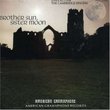
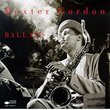

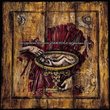


![Across The Universe [Deluxe Edition]](https://nationalbookswap.com/cd//m/51/1251/1241251.jpg)
